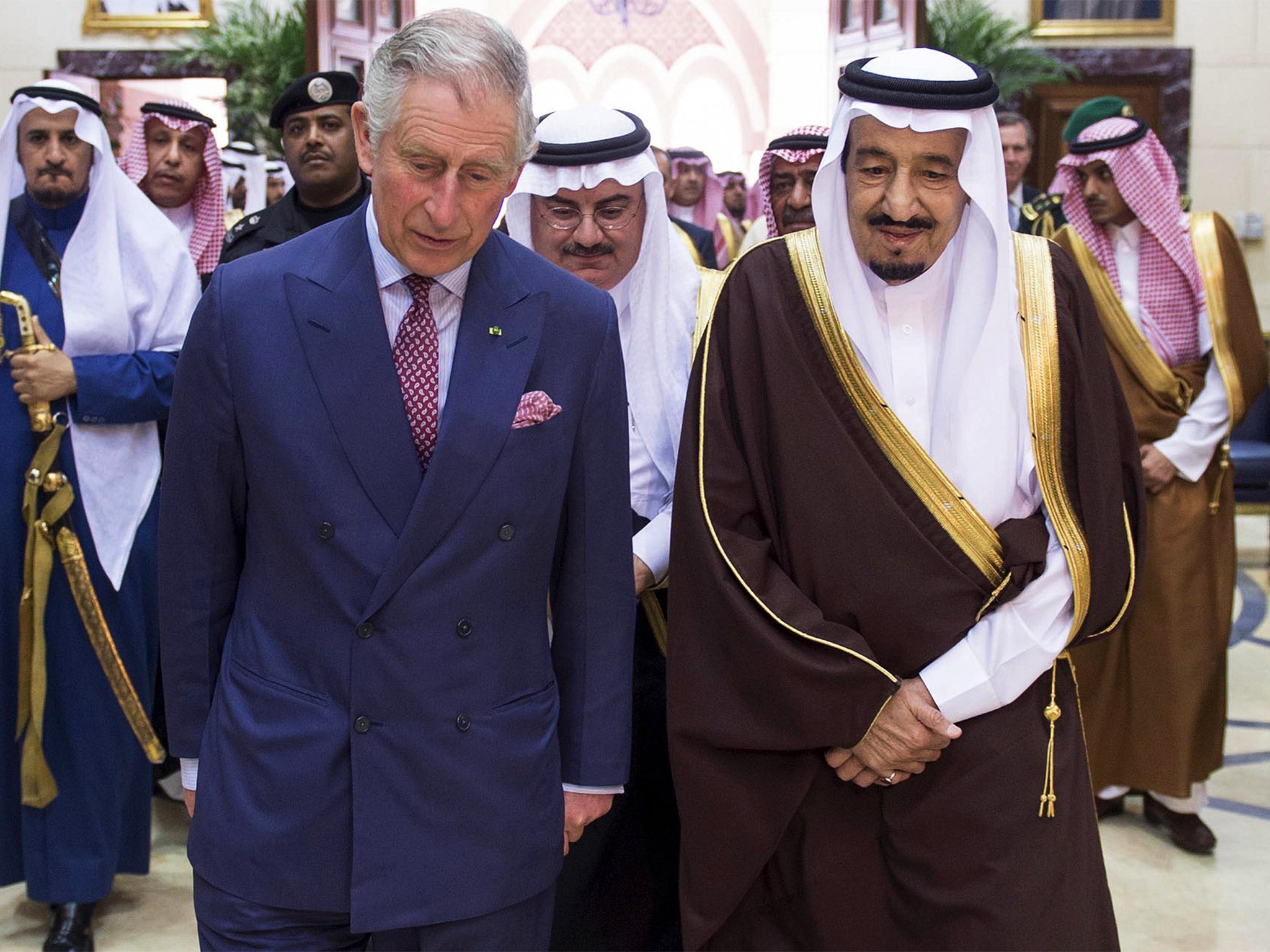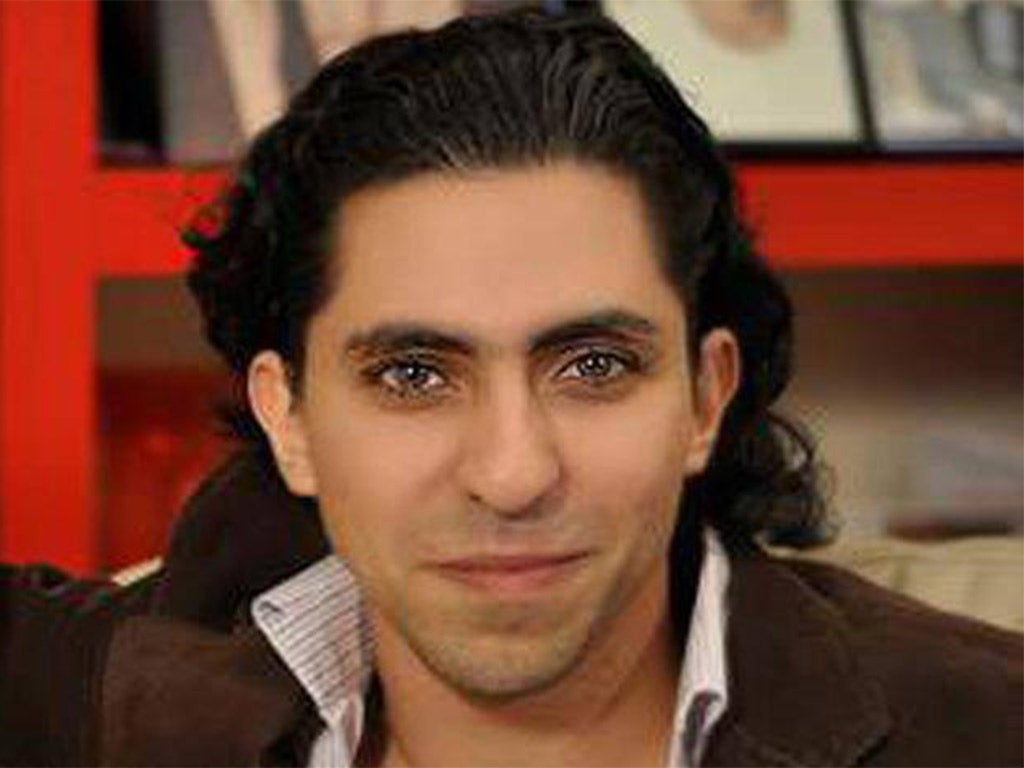Prince Charles in Saudi Arabia: Heir to throne raises issue of jailed blogger Raif Badawi with King Salman
Human rights campaigners hail prince for highlighting plight of man sentenced to 10 years in prison and 1,000 lashes for setting up a website for Saudi liberals

Your support helps us to tell the story
From reproductive rights to climate change to Big Tech, The Independent is on the ground when the story is developing. Whether it's investigating the financials of Elon Musk's pro-Trump PAC or producing our latest documentary, 'The A Word', which shines a light on the American women fighting for reproductive rights, we know how important it is to parse out the facts from the messaging.
At such a critical moment in US history, we need reporters on the ground. Your donation allows us to keep sending journalists to speak to both sides of the story.
The Independent is trusted by Americans across the entire political spectrum. And unlike many other quality news outlets, we choose not to lock Americans out of our reporting and analysis with paywalls. We believe quality journalism should be available to everyone, paid for by those who can afford it.
Your support makes all the difference.Human rights campaigners have welcomed Prince Charles efforts to raise the plight of jailed blogger Raif Badawi with Saudi Arabia’s King Salman.
Mr Badawi, 31, a father of three, was arrested in 2012 after writing articles about politics and religion and charged with breaking Saudi's technology laws and insulting Islam.
He was sentenced in 2013 to seven years' imprisonment and 600 lashes, increased last year to 10 years and 1,000 lashes. He was also fined £176,000.
Prince Charles, who is visiting the Middle East, had been urged by Amnesty International urged to intervene on Badawi’s behalf, despite the constitutional complexities of a monarch speaking out on political issues. The Prince of Wales knows the Saudi royal family well and was among the world figures who travelled to pay their respects following the death of King Abdullah last month.

On Tuesday, he and the king talked privately via an interpreter at a palace in Riyadh and then sat together for a lavish lunch attended by hundreds of guests.
A source said: “It is understood the issue was raised by the prince during his meeting with King Salman. The reaction from the king was not unfriendly.”
Last month’s death of King Abdullah sparked calls for Britain to rethink its relationship with the Saudi regime, who Prime Minister David Cameron believes has an important role to play in the fight against Isis in Iraq and Syria.
There was disquiet at Whitehall's instructions for flags to be lowered on public buildings across England and Wales in tribute to the late monarch. Meanwhile many argue that a monarch should not be speaking publicly in light of what amounts to a constitutional pledge to protect the monarchy’s political neutrality.
Sir William Patey, a former ambassador to Saudi Arabia, told the BBC that Charles had a way of raising human rights issues that did not make the Saudis “bristle”.
Amnesty International said the intervention was “encouraging and very welcome news”. “We always said we weren't expecting Prince Charles to give up the red carpets and state banquets and become a human rights campaigner, but we also hoped he'd use his unique position to pass on a few well-chosen words to his royal hosts about human rights in Saudi Arabia.
“From the various briefings from the Palace this week, we're cautiously hopeful that Prince Charles would raise Mr Badawi's outrageous case. We still need the UK Government to do more on Raif's case - including specifically calling for him to be released - but Charles' diplomatic intercession could help secure this man's freedom.”
Join our commenting forum
Join thought-provoking conversations, follow other Independent readers and see their replies
Comments